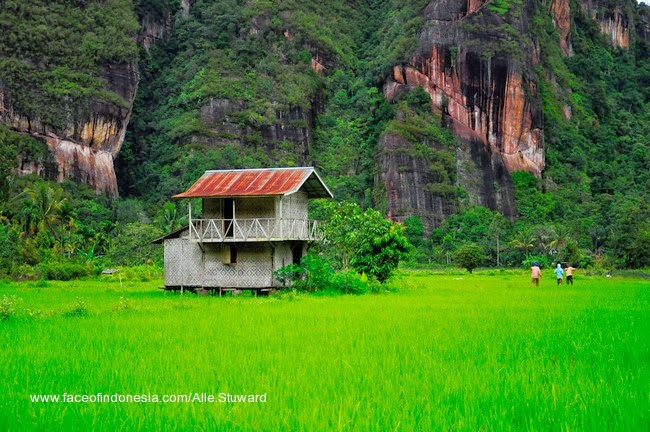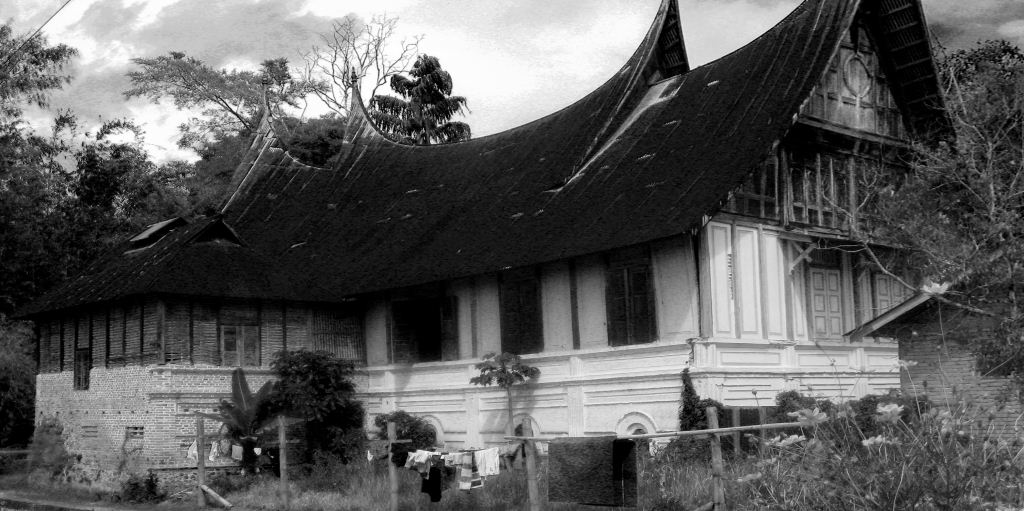The Minangkabau are an anthropological wonder. The world’s largest matrilineal society with a population the size of Los Angeles, its people sprawl through West Sumatra province in Indonesia. Despite producing numerous influential scholars and politicians, the Minangkabau have great trepidation about what urbanization means for its future.
More remarkable, this matrilineal inheritance is cherished among the Minangkabau, who are well known within Indonesia but obscure to most westerners. And while Minangkabau women’s roles may seem conventional, their sense of equality with men and their shared power is not. When couples marry, husbands move into their wives’ homes, nearly all decisions require consensus between men and women, and, significantly, girls are treasured.
“Women are the connection between the present and the past,” said Taufik Abdullah, a retired professor living in Jakarta, who is now the chairman of the Social Science Commission of the Indonesian Academy of Sciences. “If you are a Minangkabau woman and pregnant, people really hope for a girl for the first child.”
Still, the Minangkabau, who make up about 3 percent of Indonesia’s roughly 245 million people, are conservative, Abdullah said. In daily life women and men occupy roles that to Western eyes smack of inequality—women rule the domestic roost while men hold all positions of political and religious leadership. Yet both genders say that they value those roles, and each other, equally.
Although Islam may be known for its tendency to favor men and boys, the Minangkabau are prized among anthropologists because ownership of a family’s property—their homes, rice paddies and the like—pass from mother to daughter for generations.

“Our tradition is based on the holy Koran,” said Lestari, who lives with her family in Pandai Sikek, a quiet hamlet in the highlands close to the tourist enclave of Bukittinggi.Here, the breeze is cool and crops like rice, cabbage, beans and the all-important chilies grow in abundance. “The Koran says men will be the leaders. But women are not under the pressure of men. Even though men lead women, it doesn’t mean that women are less important.”
What seems key between Minangkabau men and women is that power and authority is shared, just not in ways that are immediately obvious.

Additionally, a slow exodus from Minangkabau villages is underway. A sort of short-term exile, or merantau, has traditionally been a cornerstone of their culture. When they come of age, men are encouraged to travel to experience the outside world, work for a period of time, and eventually bring back their newfound knowledge. But some of the younger generation are leaving permanently because they see no future in the modest villages. They believe that the village is meant to be a home one misses from afar, or a place where one only spends one’s childhood and old age.
It all comes down to the adat, or customs and laws that dictate the Minangkabau way of life. According to anthropologist Frederick Errington, adat allows for assimilation of new elements, as long as the core remains.
So for centuries, the flexibility of its customs has permitted the community’s survival. And if it wants to continue, it must find a way to adapt once again.

Yulida Husni, 40, and her husband, Azwar, 37, are from Sangai Tarab, a village just outside of Batusangkar, near the former seat of the ancient Minangkabau kingdom. They live with Yulida’s mother in her home, a traditional rumah gadang painted the color of cantaloupe. Over tea and sweet bananas, they agreed that in their community Minangkabau customs are cherished.
“The tradition is still used,” Husni said. “Everyday it is used.” Azwar added that the difference really is between the city and the country. “The city has more influences,” he said, “but they still celebrate important moments according to Minangkabau.”
In doing so, women remain central. As Husin, the datuk, put it, “We devote everything to women.”
Source : Daily Beast | Washington Post | ubd.edu.bn | BBC



















